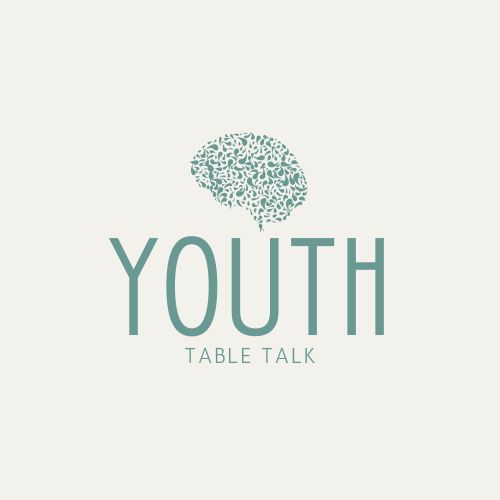Ever felt like you’re constantly walking on eggshells in a relationship? Always trying to meet impossible emotional needs, only to end up feeling drained and confused? Being in relationships with vulnerable narcissists can feel like a roller coaster ride—-moments of deep connection followed by emotional manipulation and guilt. But healing is not only possible, it’s empowering!
Ready to break free?
What Is Vulnerable Narcissism?
Vulnerable narcissism also known as covert narcissism is one of the two two faces of narcissism as given by Wink.
Vulnerable narcissism refers to the special manifestation of narcissistic personality traits where people exhibit both narcissistic tendencies and a deep rooted sense of insecurity and vulnerability.
Relationship With Vulnerable Narcissist
Relationship with a vulnerable narcissist is a constant cycle of pain and agony. A dynamic which is complex and exhausting and that’s also hard to break free.
Individuals with vulnerable narcissism may appear sensitive and insecure but they try to manipulate you through guilt and they often play the victim card.
You’ll often find yourself pouring into them, yet your own cup remains empty.
Reclaiming Your Emotional Peace
Imagine a life where your needs matter and emotional peace is possible. Sounds good?
Healing from a relationship with a vulnerable narcissist is the first step towards freedom and rediscovering yourself.
No one should carry the weight of guilt, confusion, or self-doubt and you also deserve to be free. Break the endless cycle of emotional highs and crushing lows and reclaim your emotional peace now!
Understanding Vulnerable Narcissism
Grandiose Vs Vulnerable Narcissism
The two different types of narcissism include
- Vulnerable narcissism
- Grandiose narcissism
Individuals with vulnerable narcissism often appear fragile, highly sensitive, and insecure, masking their need for validation behind defensiveness. Unlike grandiose narcissists, who seek attention through charm or dominance, vulnerable narcissists thrive on playing the victim.
Emotional manipulation tactics
They tend to manipulate others through guilt, passive-aggressiveness, or emotional withdrawal, leaving their partners feeling responsible for their well-being.
This subtle manipulation can be emotionally draining, as vulnerable narcissists create a cycle where their constant need for reassurance overshadows the needs of those around them. Looking out for these traits is the first step in recognizing the unhealthy dynamics that often exist in such relationships.
The Psychological Impact On Partners
Being in a relationship with a vulnerable narcissist isn’t easy, it’s much demanding and draining.
Self Doubts And Confusions
In such relationships, gaslighting is a common tactic, leaving you at a place where you are constantly questioning yourself and your abilities. Imagine the psychological damage of someone who has lost their own sense of self-worth—it’s truly beyond comprehension.
A sword of possible reactions is always hanging on your head and you feel yourself under the rubble, helpless and frightened.
Loss Of Self
In a constant cycle of pleasing and pacifying your narcissist partner, you leave behind your beloved self. The needs of your ‘self’ are sidelined while you are busy in the constant caretaking of your partner’s emotional highs and lows. A self that deserves to be taken care of, is weeping in the corner— unattended.
Realizing The Need To Heal
You Need Healing—Signs
Feeling constantly drained, second-guessing yourself, and emotionally distant? These are a few red flags that your relationship with a vulnerable narcissist is taking a toll on your mental health. Recognition of these effects is a first step towards your healing journey, a journey that will empower you.
Embracing The Reality
Self care is not selfish—it’s essential and this should be our top priority. And as said earlier how can you pour into someone else’s cup if your own is empty?
Accept the reality that you can’t really ‘fix’ someone with vulnerable narcissism, and it’s not even your job. This acceptance will release you from the burden of guilt and you will be more focused on your own healing that was ignored previously.
Journey Towards Recovery
Now that you’ve understood what vulnerable narcissism looks like and why there is a need to heal, we’ll further move towards the steps that will help you in your healing process.
Establish Your Emotional Boundaries
Establishing clear boundaries is a key in healing from the relationship with a vulnerable narcissist. I know this seems hard—be firm but compassionate and start by clearly communicating what behaviors are not acceptable and stick to those.
For e.g, clearly say no to guilt-tripping or emotional blackmail. Start with baby steps and enforce those consistently, slowly you’ll regain your emotional control and build that emotional distance, that’s essential for healing.
Seek Support From Therapist
Therapy is a lifeline during the healing process. A therapist helps you untangle the wires of confusion and rebuild the castle of your self-worth.
Cognitive Behavioral Therapy (CBT) or trauma therapy are proven to be effective in healing the emotional damage. Therapies often provide you a safe space to figure out your feelings, and develop healthy emotions that are helpful in your journey.
Practicing Self Compassion
Show your weeping self some kindness that may have been denied. Be compassionate to yourself and fill your cup without any guilt.
Start journaling or meditating, and make time for the hobbies you once loved. Pamper yourself—treat yourself to a spa day or enjoy a relaxing mani-pedi. By nurturing yourself, you’ll soon be able to repair the damage caused by years of emotional exhaustion.
Rebuild Your Identity
After leaving behind that toxic relationship, rediscover who you are outside of their influence. That constant cycle of pain and misery is slowly coming to its end, finally you can have some breath of fresh air and reconnect with your old passions and goals that were neglected.
Indulge yourself in activities that foster your independence, like you may learn a new skill. Keep in mind that your identity isn’t tied to someone else’s needs—you are your own boss.
No Contact Or Limited Contact
Most common challenge arises—whether you should go with no contact or limited contact? Let’s explain this a bit.
Going No Contact
In some cases, healing can’t be possible without cutting all the ties. This strategy helps you to regain your emotional control and detach you from manipulation. Going no contact is a tough yet most effective approach, which helps you to refocus on yourself without any distraction or manipulation.
Limited Contact
Sometimes, no contact isn’t an option, like in co-parenting situations. In such cases, setting up clear boundaries is the key. Limit your conversations and stick to the topic, make your interactions short. If you maintain these boundaries, you will protect your mental health while minimizing the chance of falling into the pithole of those manipulations again.
Enter New Relationship With Caution
Stepping into a new relationship after a vulnerable narcissist can feel like entering into a fun house—you’re cautious yet excited. The trick? Look for signs for a healthy relationship;
- Mutual respect
- Trust
- Open communication
Always set clear boundaries from the start and don’t overlook the red flags, even the tiny one’s. Remember this is not about being paranoid—it’s the matter of your mental peace. Take things slow, have fun and trust your instincts. You deserve someone, who cares about your mental peace—you’ve gone through alot and now it’s time for something real and healthy.
Final Words
Your relationship with an individual with vulnerable narcissism needs an end. You deserve peace, happiness and emotional independence. Take your first step today—set those freaking boundaries, seek support, and begin your journey towards healing. Why are you waiting for tomorrow? Your mental health matters most!
So are you ready to reclaim your life? Start your healing journey now and rediscover the empowered and confident YOU!
Do you want solutions for your social and psychological problems?
Then Subscribe to our newsletter

